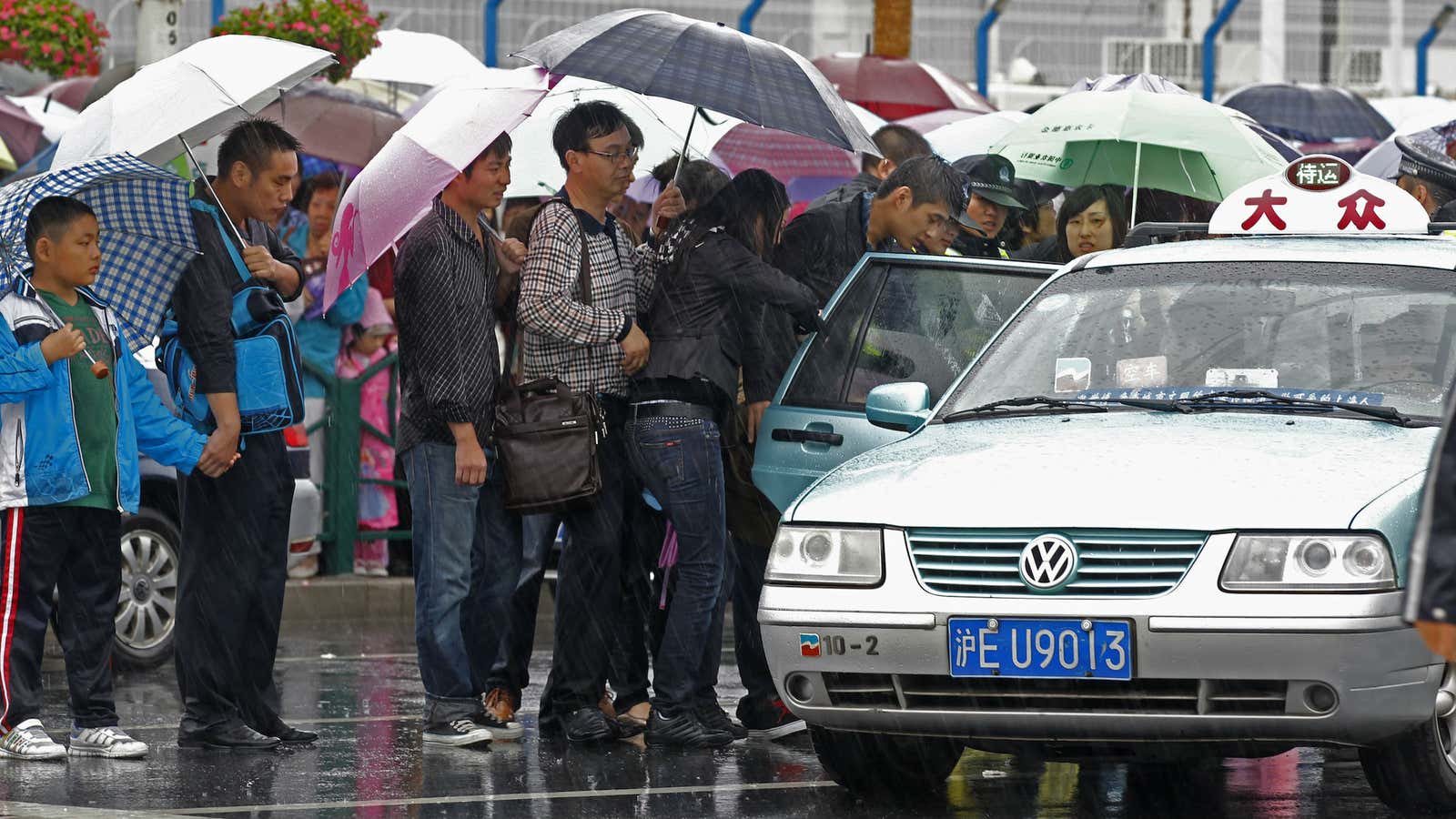Beijing traffic authorities are threatening to fine unlicensed drivers that use taxi-hailing apps including Uber as much as 20,000 yuan ($3,200) Chinese state media reported today. The crackdown follows similar measures taken across the country and is a win for the traditional taxi industry—and a setback for companies like Uber that are hoping to expand in one of the world’s fastest-growing markets for smartphone-enabled services, as well as the companies’ riders and drivers.
In Beijing, police are expected to begin increasing patrols at train stations, the airport, and other popular pick up and drop off points for these “illegal commercial operations,” according to transport officials. The government says these apps are a safety hazard, because drivers can be distracted by their phones while looking for riders, and that they discriminate against older people without smartphones—not to mention people trying to hail cabs the old fashioned way.
But the real reason may be that these apps help drivers and riders bypass the handful of state-owned taxi companies that dominate transport in cities like Beijing.
Taxi-hailing apps in China have boomed over the past few years, in response to notoriously hard-to-hail Beijing taxis. The city has 21 million residents but only 66,600 licensed cabs (link in Chinese).
China, as Quartz has reported, has mostly been a welcoming market for Uber until recently, due in part to the country’s “innovate first, regulate later” approach to technology start-ups. But those days appear to be over now, after the rise of on-demand taxi apps prompted protests from Chinese taxi drivers and worries from regulators. There are currently more than 30 similar apps, including Uber and two services backed by rival Chinese internet giants Alibaba and Tencent. The Tencent-baced Didi Dache and the Alibaba-backed Kuadi Dache each have more than 100 million registered users in dozens of cities across China.
But now, major Chinese cities are launching campaigns to crack down on the services—both those that use licensed city cabs and unlicensed black cabs. Last year, Shanghai banned the use of the apps by cab drivers during morning and evening rush hour on the basis that such apps affected the “fairness of the taxi industry.” Last month, it declared Didi Zhuanche, a premium car service hailing app, an “illegal business.” The cities Qingdao, Nanjing, Dalian, and Shenyang have all taken similar measures.
